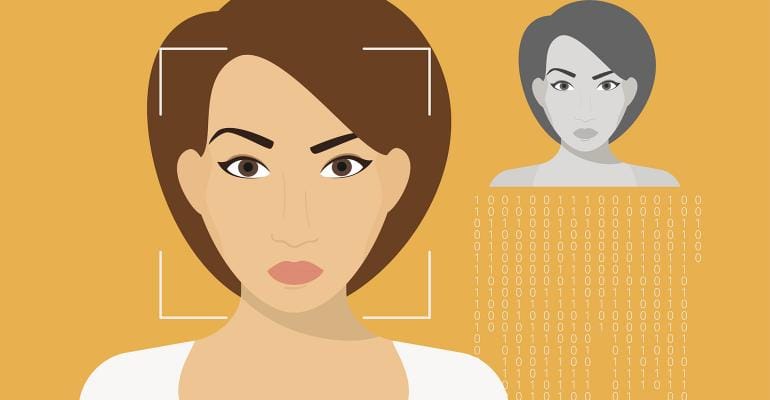
Is Technology Taking Away Your Identity?
By now I am sure you have heard the terms artificial intelligence (or AI) and facial recognition. The two are being used together to be used by police departments to aid in tracking down wanted criminals. Now the question is, is this a reliable technology or do we still have a ways to go?
Let’s set the scene with how the police department might locate a person of interest: they load a photo of the wanted person into a video surveillance network that is being powered using AI. Thousands of cameras located around the city scan the faces of everyone. Once the AI algorithm has found a facial match with someone, the officers receive an alert and respond to the location.
Sounds great, right? Not so fast.
Turns out the individual they received an alert for is in fact not the person they are after-they just happen to share similar features with the wanted criminal. This potential gray area in the algorithm has makers of this technology fearing this might happen if police departments approve an advance form of facial recognition in an attempt to make it easier to track and locate wanted criminals, missing persons, and even suspected terrorists all while expanding the government’s ability to monitor the public quietly.
Facial recognition is already common is our daily lives. In fact, most Americans over the age of 18 are already in some type of facial recognition database. It’s used to tag your friends in a photo on Facebook, unlock your iPhone, and even to focus cellphone photos.
Police in China are already using this ‘real-time’ facial recognition to locate a potential suspect in a crowd. They are also using it in a way to track how consumers shop, by watching customers and learning about their buying preferences. The United States is testing the technology out in select airports and at some border lines. With this advancement in the technology, police departments are designing systems for themselves.
This leads to the next question, is it an ethical technology?
When used in a police department, mistaken identity is a possibility. Several factors play into the accuracy of the system; lighting, varied skin tone, angles, distance, quality of cameras- all of which have the potential to cause a misidentification. The technology isn’t perfect and false positives are a factor in whether this is an ethical technology to be utilizing.
“We see facial recognition as a technology which holds great promise ─ and great peril,” Steve Tuttle, an Axon spokesman. “We do see a day when facial recognition, with the right controls and sufficient accuracy, could reduce bias and increase fairness in policing. However, we have elected to hold off on investing in developing this technology until we better understand the necessary controls and accuracy thresholds to ensure its benefits significantly outweigh its costs and risks.”
While the thought of being able to catch a criminal by using AI powered facial recognition has a certain appeal, the cost and trust of it to the public may just be too high. The growth of this technology into the future is dependent on finding a benefit that outweighs the impact of the community members’ privacy.
While Extract isn’t in the business of tracking down local criminals using facial recognition, we do agree that community members’ privacy should always be an important consideration. We know that transparency creates a trust between citizens and the government. Here at Extract, we try to encourage governments to be more transparent with their community members by being able to put court and land records online, without the fear of citizens’ private information being available to those who might misuse it.
If you’d like to learn more about our automated redaction solution, please reach out today.



